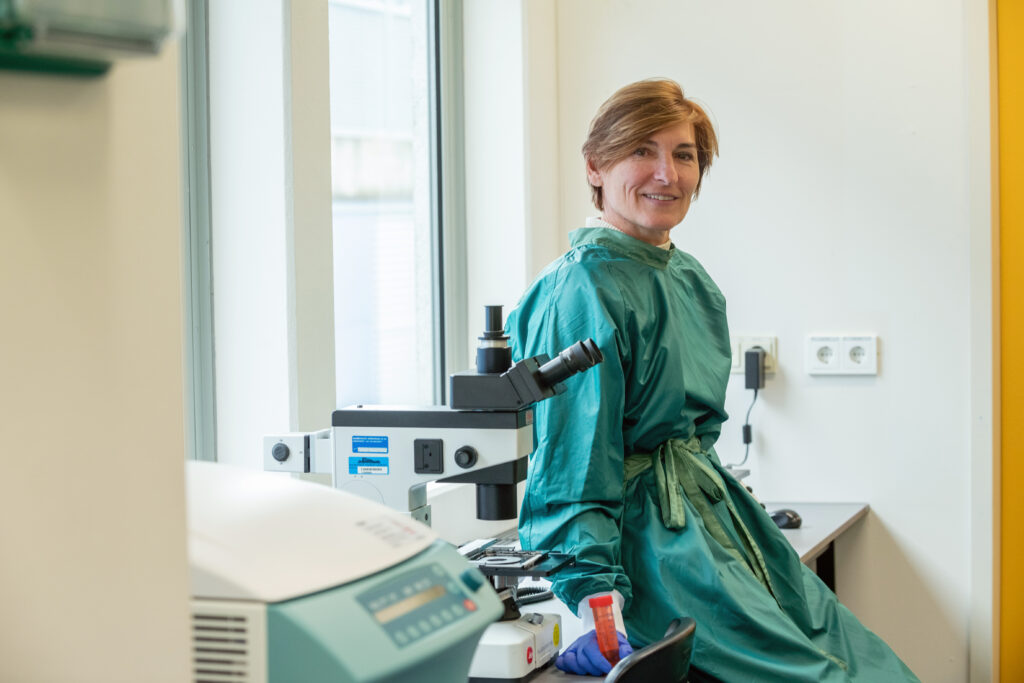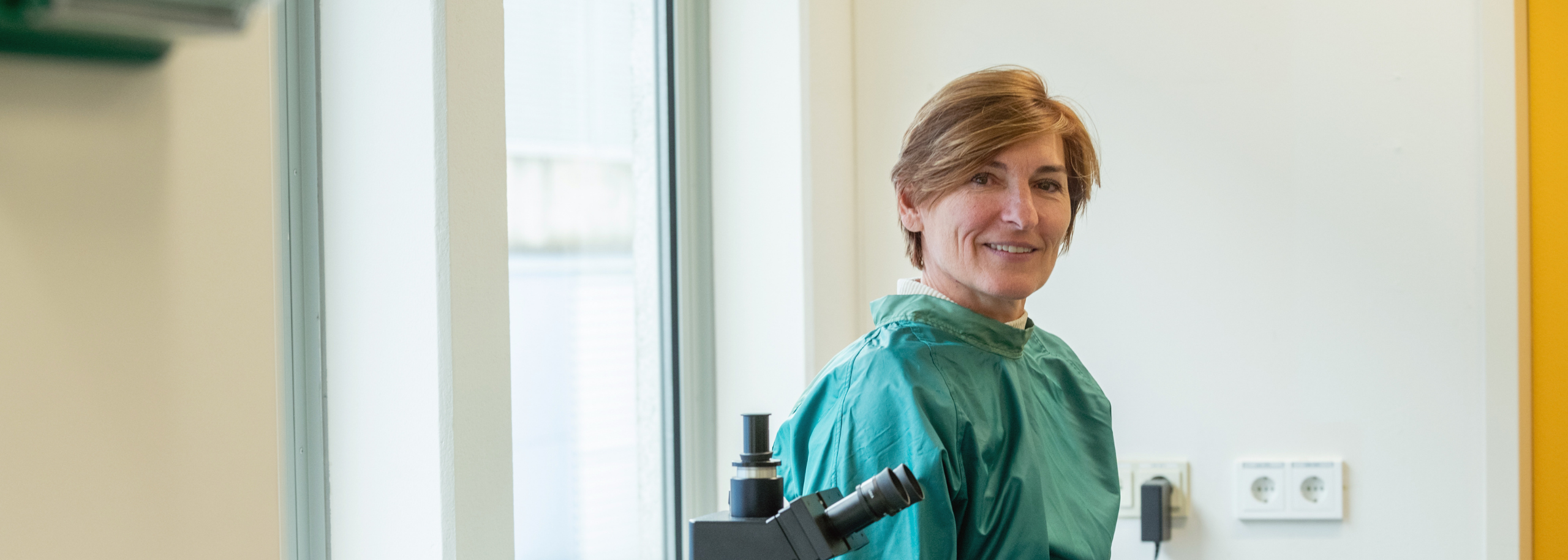In our recurring section of motivational blogs, scientists explain what motivates them to go against the current and develop animal-free alternatives. This time dr. Dasja Pajkrt has the floor. By using human-based models, Dasja and her team conduct research on how HIV-infections occur and how they can best be prevented and/or cured.
Dasja: “I have been researching HIV infections that occuer in childhood for about ten years. Traditionally, such research has been done on laboratory animals. But the translation of research with animals to humans is very limited and this limitation results in the development of few effective or safe drugs.”
Text continues below image

dr. Dasja Pajkrt
The solution: organoids
“Fortunately, there is a promising, alternative research model: organoids, also known as cultured mini-organs. With organoids, it’s possible to mimic human intestines and brains in the lab, by growing them from human stem cells. Using these stem cells, we are developing two organoids for our current project ‘Focus on Virus.’ By infecting these human models with HIV, we can test drugs that could not be tested with animal testing. We can also understand the onset of this disease faster than with an animal model.”
Virus infections are best studied without animal testing
“I expect that fewer and fewer animals will be used in the development of new drugs for humans. This development is already underway: for example, we have already reduced the number of animal experiments by using cultured mini-brains in gene therapy.
I hope that more and more people realize that we can prevent animal suffering and that we can save on money and time, if we stopped conducting certain animal experiments, because they cannot be translated to the human situation. Human virus infections are best studied in the human context, allowing for the faster development of new drugs.”
Dasja inspires us, and more importantly, others. She proves that animal-free science has the future. Thank you Dasja for taking the time to answer our questions. We wish you all the best with your wonderful work and together we can increase our impact on a world without animal testing.

